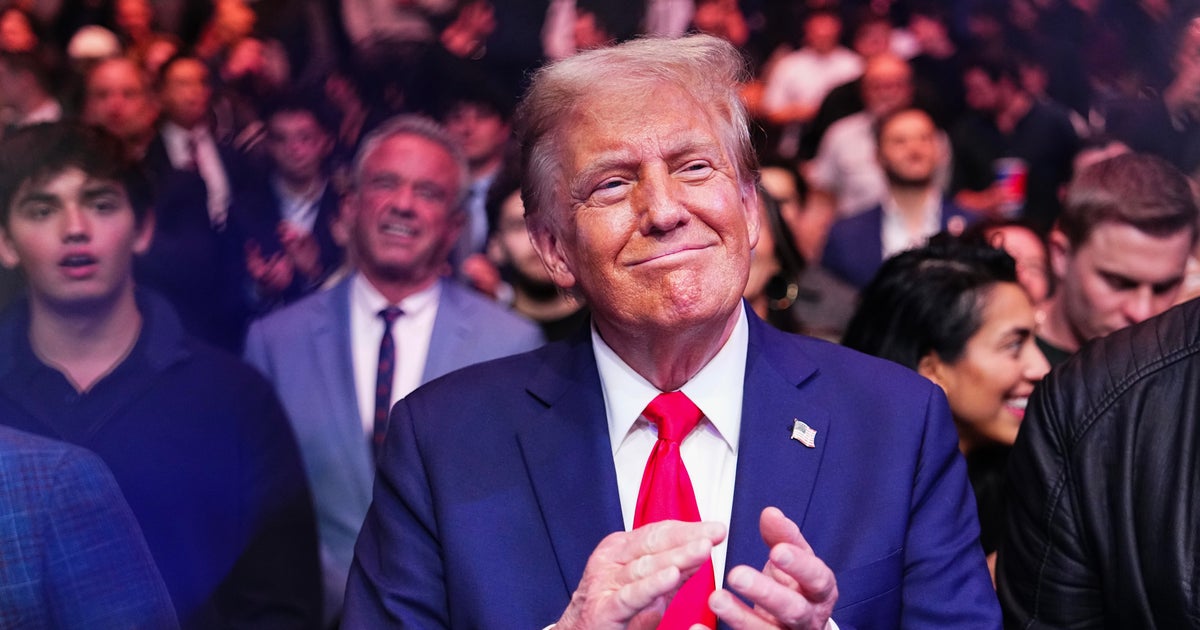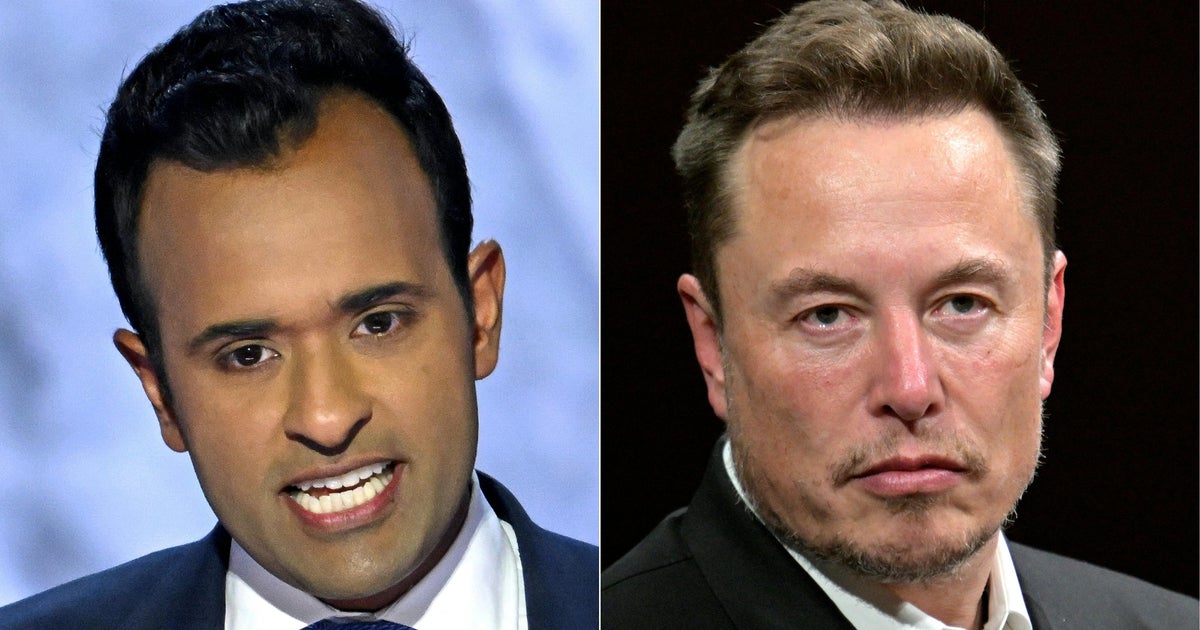What to know about the 2019 State of the Union address
The annual State of the Union address by the president is considered a Washington institution. The president has appeared before a joint session of Congress every year since 1913, providing a debrief on the country's current political and economic status. There's no indication yet that 2019 will depart from the 105-year norm -- though House Speaker Nancy Pelosi effectively barred President Trump from giving the address in the House chamber, the typical venue for the speech, Mr. Trump has agreed to postpone it until the government reopens.
But if the government shutdown goes on for months instead of weeks, this arrangement may be in doubt. With that in mind, here's a rundown of what the State of the Union is, and the forms it can take:
What is the State of the Union?
Article II of the Constitution requires the president to "give to Congress information of the State of the Union and recommend to their Consideration such measures as he shall judge necessary and expedient." The language of the State of the Union clause is unspecific, saying only that the president must give the address "from time to time," but historically, presidents have delivered the speech at the beginning of the year.
Although Presidents George Washington and John Adams delivered their addresses to Congress in person, President Thomas Jefferson chose to write the address in a letter to Congress. He suggested he was doing Congress a favor by sending it to them in writing, showing "principal regard" because it was more convenient for lawmakers, saved time, and spared them "the embarrassment of immediate answers on subjects not fully before them."
Presidents followed Jefferson's example for over a hundred years -- until 1913, when President Woodrow Wilson reinstated the practice of delivering the address in a speech before Congress. His decision to do so came as a shock to many in Washington. And the Washington Post's coverage certainly reflects that.
"WILSON TO READ MESSAGE IN HOUSE," the headline read, followed by these sub-headlines: "Will personally prevent tariff ideas to Congress; BREAKS OLD PRECEDENT; No Executive Has Addressed Lawmakers since 1801. WASHINGTON IS AMAZED." Wilson wanted, the Post reported, more intimacy between Congress and the president.
Presidents have generally given State of the Union addresses in person to Congress almost every year since. The last president to only submit a written State of the Union was President Jimmy Carter in 1981, days before President Ronald Reagan was inaugurated.
What is the current controversy over the State of the Union?
Pelosi wrote a letter formally asking President Trump to delay his State of the Union address scheduled for Jan. 29, or to submit his thoughts in writing instead, earlier this month. She cited potential security concerns given that federal agencies are stretched thin, given their furloughed or unpaid workforce.
"Sadly, given the security concerns and unless government reopens this week, I suggest that we work together to determine another suitable date after government has reopened for this address or for you to consider delivering your State of the Union address in writing to the Congress on January 29th," Pelosi wrote.
Mr. Trump issued a pair of tweets on Wednesday evening in which he said he'd wait, admitting the House chamber is an incomparable venue for the address.
"As the Shutdown was going on, Nancy Pelosi asked me to give the State of the Union Address. I agreed. She then changed her mind because of the Shutdown, suggesting a later date. This is her prerogative — I will do the Address when the Shutdown is over," Mr. Trump tweeted. "I am not looking for an ... alternative venue for the SOTU Address because there is no venue that can compete with the history, tradition and importance of the House Chamber. I look forward to giving a 'great' State of the Union Address in the near future!"
Mr. Trump and congressional Democrats remain locked in a stalemate over border wall funding, amid the largest government shutdown in American history. Mr. Trump is refusing to sign any government funding bill which does not include money for a border wall, while Democrats will not negotiate on the issue while the government is shut down.
Does the president have to be invited to speak before Congress?
The president typically receives formal invitation from the speaker of the House to give the address before a joint session of Congress several weeks before the speech. In order for the president to speak before a joint session of Congress, the House and the Senate need to pass a joint resolution allowing him to address the joint session.
Mr. Trump initially indicated that he would give the State of the Union in the House chamber, despite Pelosi's request to postpone it while the government is shut down. Mr. Trump wrote a letter to Pelosi Wednesday saying, "I look forward to seeing you on the evening on Jan. 29 in the Chamber of the House of Representatives. It would be so very sad for our country if the State of the Union were not delivered on time, on schedule, and very importantly, on location!"
But Pelosi would not assent. She wrote a letter to Mr. Trump later that afternoon asserting her authority to prevent the president from speaking in the House chamber, saying that she would "not consider a concurrent resolution authorizing the President's State of the Union address in the House Chamber until government has opened."
Has the State of the Union ever been canceled?
Only two presidents never delivered a State of the Union address to Congress in any shape or form, although it was through no fault of their own. William Henry Harrison died a month into his tenure, and James Garfield was assassinated six months into his presidency.
Reagan's 1986 address is the only State of the Union to have been postponed. Reagan postponed the speech by a week after the Space Shuttle Challenger disaster.
Is the 2019 State of the Union canceled?
"The State of the Union has been canceled by Nancy Pelosi, because she doesn't want to hear the truth," Mr. Trump told reporters Wednesday.
That isn't strictly true; the president is mandated by the Constitution to deliver the address in some form, and it is only tradition which dictates that the State of the Union be delivered in person before a joint session of Congress. It's more accurate to say that Pelosi canceled the president's chosen method of delivery for the State of the Union.
However, Mr. Trump later acceded to Pelosi's demand and said that the State of the Union would be postponed -- not canceled altogether.
Did Trump have a backup plan to deliver the address elsewhere?
"We'll do something in the alternative, we'll be talking to you about that at a later date," he told reporters, and there was some talk of a different venue for the speech. However, he had changed his mind by the end of the evening, writing a tweet saying he was not looking for an "alternative venue for the SOTU Address because there is no venue that can compete with the history, tradition and importance of the House Chamber."




